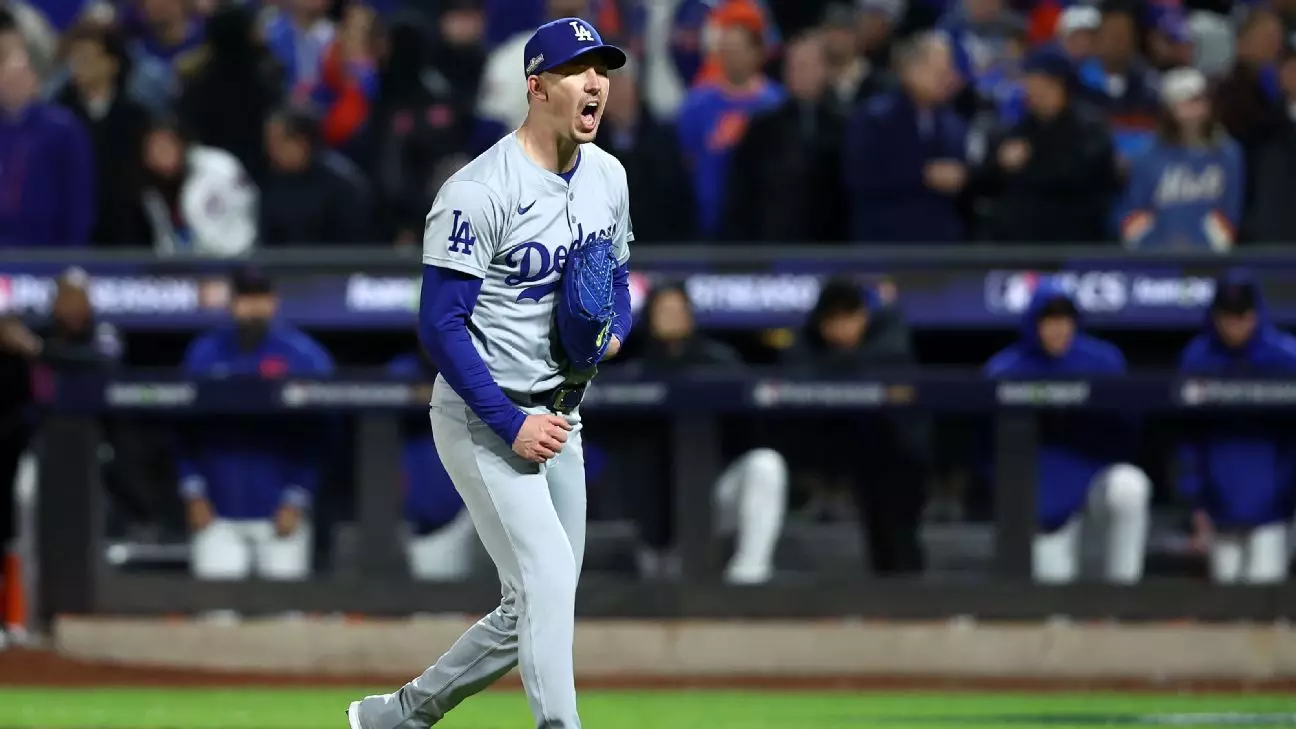The Los Angeles Dodgers are turning to Walker Buehler as their starting pitcher for Game 3 against the New York Yankees, a strategic choice with significant implications. This decision not only maintains the integrity of the pitching rotation but also prepares the team for a possible high-pressure Game 7 showdown back at Dodger Stadium. Following his second Tommy John surgery, Buehler’s reliance on his fastball has diminished, pushing him to adapt his game to suit the current high-stakes scenario. His evolution as a pitcher becomes critical, reflecting the realities of sports where injuries can dramatically change a player’s approach to the game.
In his recent outing during the National League Championship Series, Buehler showcased his ability to pivot away from his traditional pitching mechanics by skillfully deploying his curveball. This adaptation has proven vital in navigating difficult situations on the mound, as evidenced by his performance against the New York Mets, where he maintained a scoreless streak through four innings. His latest performance acts as a reminder of the talent that has previously bolstered the Dodgers’ postseason runs and raises the question of just how resilient athletes can be when faced with adversity.
High Stakes and Managerial Decisions
Dodgers Manager Dave Roberts has expressed unwavering confidence in Buehler’s ability to handle the pressure of postseason play, citing his experience as a significant asset. The mentality and focus needed for big games cannot be understated, and Roberts’ trust in Buehler illustrates the broader importance of player psychology in high-stakes situations. The psychological component of baseball often receives less attention than physical performance metrics, but in the postseason, mental fortitude can be equally decisive.
On the opposite side, Yankees Manager Aaron Boone is also making calculated decisions regarding his pitching strategy. Luis Gil’s anticipated start for Game 4 is noteworthy, especially considering his encouraging performance during past matches. Gil’s journey to becoming a starter is especially remarkable; originally expected to begin the season in Triple A, his opportunity opened up due to injuries on the team. His ability to deliver a solid performance with a respectable 3.50 ERA through 29 starts highlights his potential to contribute significantly to the Yankees’ championship ambitions.
The Bigger Picture: Navigating the Postseason’s Challenges
As both teams find themselves in a pivotal moment of the championship series, the decisions made now will resonate throughout the trajectory of the postseason. For the Dodgers, Buehler embodies a mixture of experience and adaptability—traits that are invaluable in the world of playoff baseball. At the same time, the Yankees, through Gil’s performances, showcase the importance of roster depth, demonstrating how emerging talent can fill critical gaps in the wake of injuries to key players.
Ultimately, the intricate web of strategies, decisions, and player performances will shape the outcome of this series. With every pitch thrown and every game played, both teams must remain aware that at the core of postseason baseball lies the unpredictability that can flip an underdog into a champion or secure a storied franchise’s legacy.


Leave a Reply